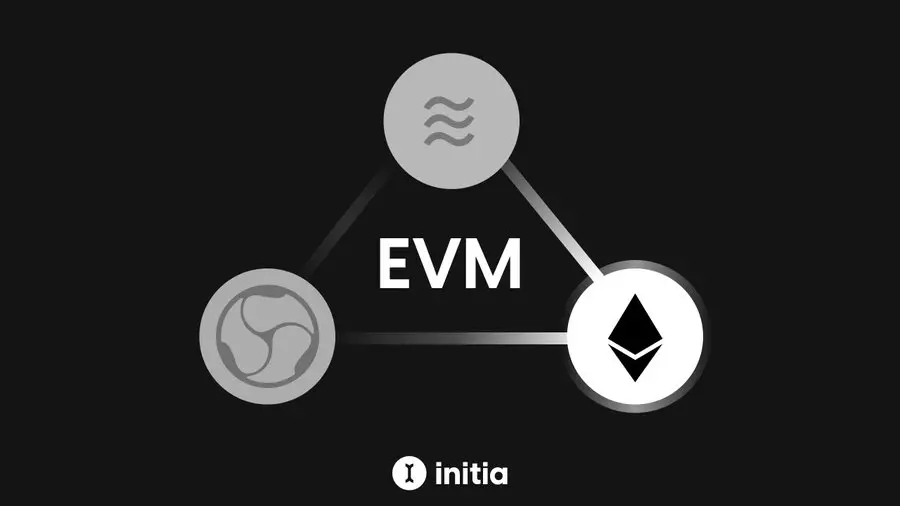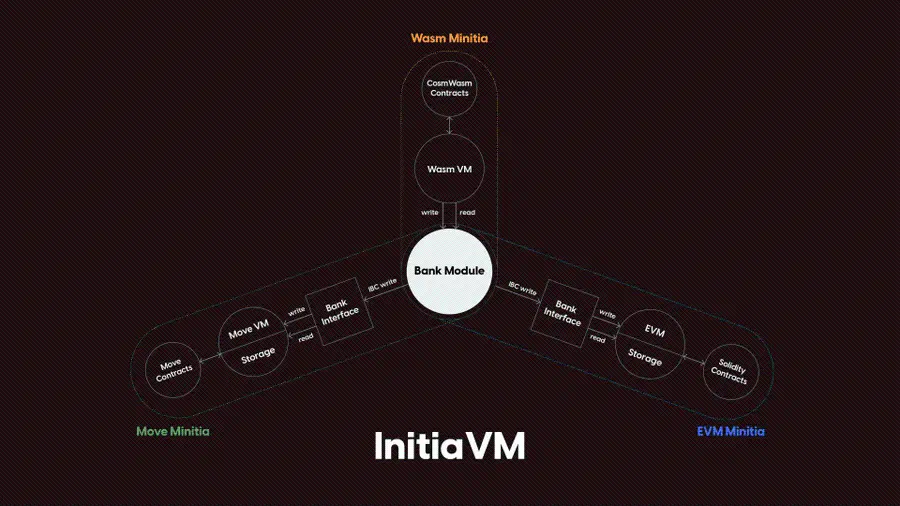Original author: Initia
Original compilation: Alex Liu, Foresight News
Initia is a modular L1 public chain on which many "interwoven" Rollups can be deployed and vertically integrated, officially called "Minitias" (similar in concept to Dymension and its RollApps).
Initia is built based on the Cosmos SDK. When the Cosmos ecosystem already has EVM solutions such as Evmos, why did Initia choose to build its own Initia EVM? What is so special about it?
Initia is committed to making Minitia s the easiest way to build high-speed, flexible, interoperable application chains, and virtual machines are just tools in the Minitia toolkit. The choice should be based on the specific use case or language preference your team is pursuing—the flexibility that comes with multiple options is the benefit of modular design. Minitia s are free to choose Initia EVM, Initia MVM (Move VM) and Wasm VM as VM.
In a Rollup-centric future, thousands of Rollups will need to interact seamlessly, and they should be inherently interoperable rather than appended later — even across virtual machines. This concept prompted Initia to carry out targeted optimization of InitiaEVM, InitiaEVM, InitiaMVM and WasmVM have cross-virtual machine interoperability.
Initia EVM is designed as a module of the Cosmos SDK, which increases the interoperability of Cosmos and IBC while supporting Solidity smart contracts and EVM operations.
With full EVM compatibility, Solidity contracts can be deployed and migrated to Initia EVM without modification.

More importantly, Initia EVM binds the EVM and Cosmos layers together through a customized Bank Interface (BI), replacing the native coin with ERC20. Standard Cosmos x/Bank module for currency) accounts.
Cosmos Bank == ERC20.
Initia’s MoveVM also uses a similar model.

So although EVM Minitias is a Cosmos chain, it only has 1 token standard: ERC20.
People don’t have to think about concepts like Cosmos tokens, interfaces, or token conversions at all. Solidity projects can be migrated without any burden and can optionally be connected to Cosmos.
IBC is the most proud cross-chain protocol of the Cosmos system, which allows assets to be easily transferred between different Cosmos chains. In InitiaEVM:
This makes asset transfer between Minitias simple and easy.
The Initia EVM can execute any Cosmos message or query the Cosmos chain state directly from the Solidity contract. Inter-chain accounts, ICQ, Slinky queries, everything is available. The development experience is no different from EVM chain development, which embraces the vast Solidity ecological development community and reduces the development burden.
InitiaEVM has integrated IBC hooks (Hooks) to support multi-chain, cross-virtual machine, and contract interaction, which is crucial for the new multi-chain world order.
In Initia's view, a good modular EVM, first of all, "is an EVM." Developers can do it without learning any new concepts or modifying any source code. Run past Solidity programs on the new application chain to achieve zero-cost migration. Secondly, it needs to have interoperability across Rollups, across different virtual machines, token standards, asset transfer functions and underlying chain integration to provide a good user experience in the future multi-chain world.
The above is the detailed content of Initia: What does a good modular EVM look like?. For more information, please follow other related articles on the PHP Chinese website!




